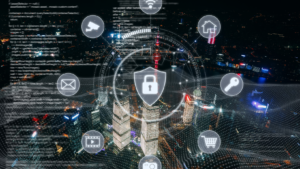In today’s digital age, cybersecurity awareness is more crucial than ever. As technology continues to evolve, so do the threats that target sensitive information. Cybercriminals are becoming increasingly sophisticated, making it essential for individuals and organizations to stay informed about potential risks and how to mitigate them.
With the rise of remote work and online transactions, personal and professional data is constantly at risk. A single click on a malicious link can lead to severe consequences, including identity theft and financial loss. To understand why cybersecurity awareness is important because it empowers people to recognize and avoid these threats, protecting themselves and their assets.
Moreover, businesses face reputational damage and financial penalties if they fail to safeguard their data. By fostering a culture of cybersecurity awareness, organizations can enhance their defenses and ensure compliance with industry regulations. Understanding the importance of cybersecurity is the first step toward creating a safer digital environment for everyone.
Why Cybersecurity Awareness is Important

Cybersecurity awareness encompasses knowledge about potential online threats and how to mitigate them. This understanding spans across identifying phishing attempts, recognizing malware, and applying best practices such as strong password usage. Individuals and organizations learn to detect suspicious activity and respond effectively.
Understanding why cybersecurity awareness is important helps reduce human error. With this knowledge, people distinguish between safe and harmful online interactions, limiting unauthorized data access. A well-informed community minimizes vulnerabilities inherently present in technological ecosystems.
The Growing Threat Landscape
We need to understand why cybersecurity awareness is important because it becomes more essential as the threat landscape expands. Malicious actors continuously adapt, creating a challenging digital environment.
Increasing Cyber Attacks
Cyber attacks have surged globally, affecting individuals and businesses alike. According to Cybersecurity Ventures, cybercrime damages are projected to reach $8 trillion by the end of 2023. Hackers target various sectors, including healthcare and finance, seeking sensitive information like medical records and financial data. Remote work has also increased vulnerabilities, with corporate networks and personal devices becoming frequent entry points for attackers.
Sophisticated Hacking Techniques

Hackers deploy advanced techniques to bypass security measures. Tactics include social engineering, where attackers manipulate individuals into revealing confidential information. Phishing emails now employ AI-generated messages to mimic legitimate sources precisely.
Zero-day exploits target unknown vulnerabilities in software, providing hackers a window to infiltrate systems before developers can issue patches. This sophistication underscores the need for robust cybersecurity awareness and defenses.
Impacts of Cyber Attacks
Cyber attacks significantly disrupt various facets of modern life. They pose threats to financial stability and data privacy, making cybersecurity awareness crucial for protection.
Financial Losses
Cyber attacks result in substantial financial losses for businesses and individuals. The direct costs of ransomware payments, for example, often exceed initial estimates. Indirectly, attacks incur costs like system downtime and lost business opportunities. Organizations investing in cybersecurity awareness programs can effectively mitigate these financial risks. A well-informed workforce recognizes and avoids suspicious activities that could lead to costly breaches.
Data Breaches and Privacy Concerns
Data breaches compromise sensitive information, raising privacy concerns for affected parties. Personal data like names and social security numbers, once exposed, can lead to identity theft and fraud. Companies facing such breaches suffer reputational damage, particularly if customer trust erodes. Implementing robust cybersecurity measures and training employees to identify potential threats helps prevent unauthorized access to sensitive data and promotes public confidence.
Benefits of Cybersecurity Awareness
Cybersecurity awareness plays a pivotal role in safeguarding both personal and organizational assets. By educating individuals and employees about cybersecurity practices, potential online threats are minimized, fostering a secure digital environment.
Protecting Personal Information

Cybersecurity awareness helps individuals shield their personal information from cyber threats. Data breaches often target sensitive data like social security numbers and banking details.
Well-informed individuals can identify phishing emails and scam tactics, reducing identity theft risks. Regular software updates and reporting of suspicious activities further enhance personal security in online activities.
Ensuring Business Continuity
For businesses, cybersecurity awareness ensures uninterrupted operations. Cyber attacks can halt business processes, leading to financial and reputational damage. A knowledgeable workforce identifies vulnerabilities and mitigates them, protecting critical systems and data. Consistent training equips employees to handle cyber threats effectively, ensuring smooth business continuity and compliance with regulatory standards.

